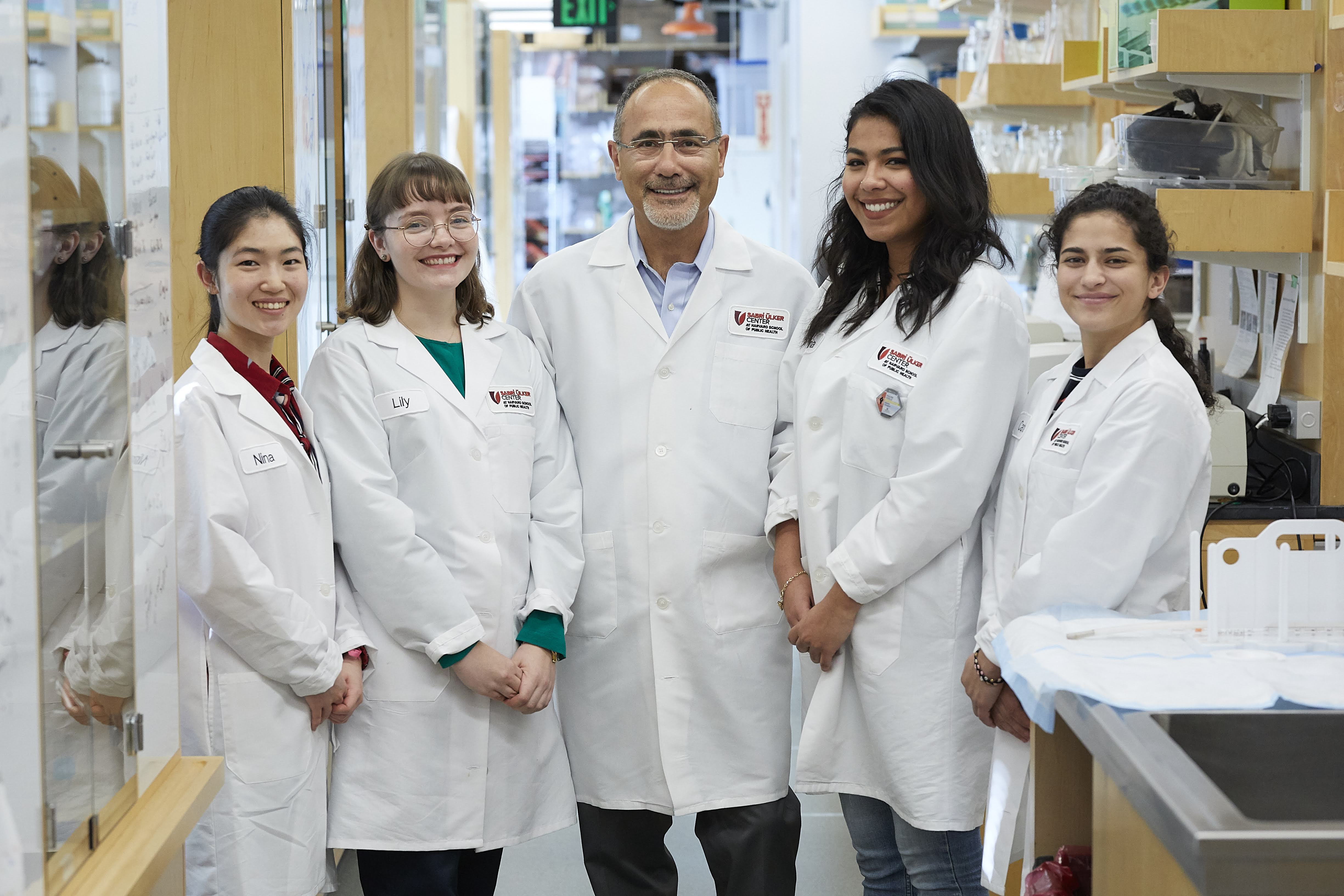Hotamışlıgil Lab, Sabri Ülker Center, the Harvard TH Chan School of Public Health
The Sabri Ülker Foundation, headquartered in Istanbul, and the Sabri Ülker Center for Metabolic Research, located in the TH Chan School of Public Health, Harvard University, work side-by-side on different aspects of nutrition, metabolism, and public health. Whilst the Foundation concentrates on direct interactions with the public and initiatives with those responsible for interacting with the public, the Center specializes in fundamental research into nutrients, genetics and metabolism. The Sabri Ülker Foundation supports the Center and undertakes communication activities on behalf of the Sabri Ülker Center.
The Hotamışlıgil Lab, Sabri Ülker Center studies innate adaptive pathways involved in metabolic health and diseases such as obesity, diabetes, cardiovascular disease, hepatosteatosis, and asthma. For the past 30 years, Hotamışlıgil lab, together with their team of scientists and collaborators, has made important foundational contributions to the burgeoning field of “immunometabolism”, studying the interactions between metabolic and immune responses as critical drivers of numerous chronic diseases. In the last decade, the lab has approached immunometabolism in two highly integrated paths: organelle homeostasis and lipid metabolism. Using biochemical, genetic, and physiological studies, we aim to find novel pathways and preventive, therapeutic solutions to today’s greatest threats to global human health. Several programs of the Center has reached or at the final stages of human testing and applications.
The Center is under the leadership of world-renowned academician and scientist Prof. Dr. Gökhan Hotamışlıgil and brings together a highly qualified, diverse. and dedicated multidisciplinary team of scientists from around the world. They work together, inspire each other and have made many groundbreaking and impactful discoveries. We are delighted to note that Turkish scientists are well-represented in the Laboratory and their continued links with Türkiye lead to an enrichment of scientific capabilities in Türkiye and elsewhere. Future activities of the Center will focus on progressing these discoveries in practical terms for the benefit of human health. Below, we summarize two recent groundbreaking discoveries made by the Center scientists.
Research into molecular architectural organization and metabolic adaptation in health and disease.
This research, conducted by Prof. Dr. Gökhan Hotamışlıgil and his team, is a recent example of the fundamental work of the Sabri Ülker Center. Using Focused Ion Beam Scanning Advanced Electron Microscopy the team obtained an unprecedented resolution of the liver subcellular architecture in normal and obese liver tissue and during nutritional fluctuations. They then discovered that the dynamic changes in the subcellular architecture is a novel mechanism that controls metabolic homeostasis. One of the most important aspects of this effort was showing the possibility or restoring normal metabolic functions in the cell through molecular repair of the deteriorated subcellular form. The findings were published in the journal Nature (Parlakgül, G et al, Nature. 2022 March; 603(7902): 736–742. doi:10.1038/s41586-022-04488-5).
The discovery of a novel hormone complex and its role in diabetes
In this study, conducted by Prof. Dr. Gökhan Hotamışlıgil and his team, the researchers identified a novel hormone complex named Fabkin. They showed that a lipid binding protein, FABP4 is secreted from fat cells, enters the blood stream, and binds with the enzymes NDPK and ADK to form the protein complex now identified as Fabkin. This protein complex alters the composition of ATP and ADP, which are the essential units of energy in biology and informs the target organs about the changing energy status of the organism. The researchers also discovered that the insulin-producing beta cells of the pancreas are a critical target of Fabkin and this novel hormone is a central mechanism underlying the development of both type 1 and type 2 diabetes. The findings were published in the journal Nature (A hormone complex of FABP4 and nucleoside kinases regulates islet function,”Kacey J. Prentice, Jani Saksi, Lauren T. Robertson, Grace Y. Lee, Karen E. Inouye, Kosei Eguchi , Alexandra Lee, Ozgur Cakici, Emily Otterbeck, Paulina Cedillo, Peter Achenbach, Anette-Gabriele Ziegler, Ediz S. Calay, and Gökhan S. Hotamisligil, Nature, December 8, 2021, DOI: 10.1038/s41586-021-04137-3)
The Sabri Ülker Metabolic Research Center in Numbers
Number of employees: 23 (with more than 90 trained in the past decade and holding independent positions around the world)
Number of Turkish scientists currently in the team: 5
Number of ongoing projects: 10 (one discovery made at that Center identified a bioactive natural lipid which is currently in clinical trials)
Number of Turkish scientists who have participated in the work of the Center since its foundation: 35
Number of scientific articles published by Gökhan Hotamışlıgil since the opening of the laboratory: 201
Total number of citations: 85,000,
Dr. Hotamışlıgil is among the most cited scientist in the world (2018 – 2022 (143/overall, and 3/in field;
doi: 10:17632/btchxktzyw.5 and https://clarivate.com/highly-cited-researchers/).


